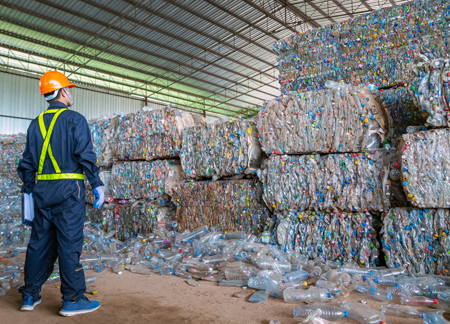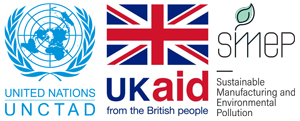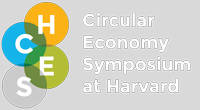 Worldwide material consumption has expanded rapidly in recent decades, seriously jeopardizing the achievement of Sustainable Development Goal (SDG) 12 on responsible consumption and production. The escalating global material footprint has contributed to increased pollution, soil contamination, greenhouse gas emissions, and threats to human health and wildlife, putting the achievement of SDGs more broadly also at risk. Urgent action is needed to ensure that current material needs do not lead to the over-extraction or degradation of natural resources. Achieving SDG 12 requires changing the traditional linear production model and moving towards a circular economy based on improved resource efficiency, increased re-use and recycling, reduced waste, and mainstreamed sustainability practices across all sectors of the economy.
Worldwide material consumption has expanded rapidly in recent decades, seriously jeopardizing the achievement of Sustainable Development Goal (SDG) 12 on responsible consumption and production. The escalating global material footprint has contributed to increased pollution, soil contamination, greenhouse gas emissions, and threats to human health and wildlife, putting the achievement of SDGs more broadly also at risk. Urgent action is needed to ensure that current material needs do not lead to the over-extraction or degradation of natural resources. Achieving SDG 12 requires changing the traditional linear production model and moving towards a circular economy based on improved resource efficiency, increased re-use and recycling, reduced waste, and mainstreamed sustainability practices across all sectors of the economy.
UNCTAD and Harvard University are joining forces to bridge theory and practice to bring the circular economy to life. The Sustainable Manufacturing and Environmental Pollution (SMEP) programme – a research and development initiative funded by the United Kingdom’s Department for International Development (DFID) and implemented by UNCTAD – is cosponsoring the first Circular Economy Symposium at Harvard, to take place on 6 March 2020, in Cambridge, Massachusetts, in the United States of America. The symposium brings together researchers and organizations from the public and private sectors and civil society, and aims to explore linkages between policy, finance and business processes, and to help forge connections across sectors to jumpstart the transition to more sustainable systems.
 Mr. Mario Jales, from UNCTAD’s Division on International Trade and Commodities (DITC), will join the event and share his views on how better policy and regulation can give traction to circular markets across borders. The high-level panel of leading academics, policymakers and practitioners will address the growing trade restrictions reshaping value chains across the globe, the role of national governments, regional blocks and multilateral organizations in promoting supply chains with circular characteristics, and whether the future of circularity is likely to be local or global.
Mr. Mario Jales, from UNCTAD’s Division on International Trade and Commodities (DITC), will join the event and share his views on how better policy and regulation can give traction to circular markets across borders. The high-level panel of leading academics, policymakers and practitioners will address the growing trade restrictions reshaping value chains across the globe, the role of national governments, regional blocks and multilateral organizations in promoting supply chains with circular characteristics, and whether the future of circularity is likely to be local or global.
The symposium will be held in Tsai Auditorium, at Harvard’s Center for International and Government Studies, between 8:00 a.m. and 5:00 p.m. on 6 March. Three related events will precede the symposium: the Circular Design Workshop (on 4 March), a seminar on the impacts on developing countries of EU and OECD trade and sustainability policies (on 5 March, at Harvard’s John F. Kennedy School of Government), and a workshop on entrepreneurship in the circular economy (on 5 March, at the Harvard Business School).
About SMEP
The SMEP programme seeks to reduce negative externalities of manufacturing in developing countries by funding research activities and developing technical solutions to pollution and environmental degradation in sub-Saharan African and South Asia. UNCTAD acts as a strategic partner to the programme, providing technical assistance and support services, as well as contributing to consensus building and the dissemination of results to the international community.






